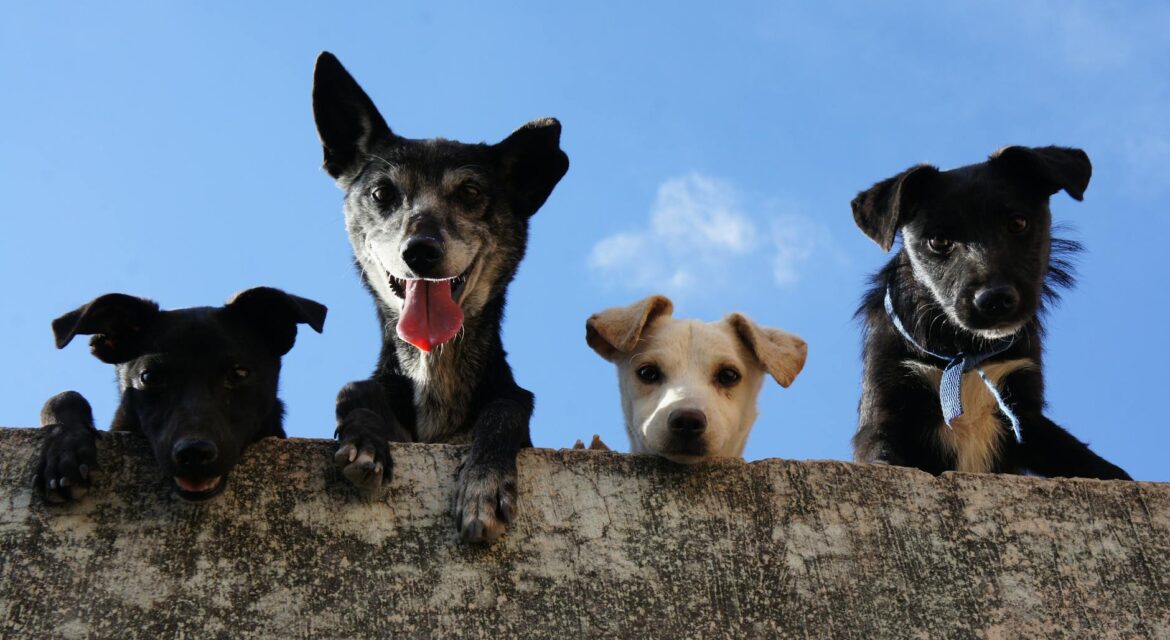 28 Mar
28 MarPaw-some Socialization Strategies: Helping Your Puppy Grow into a Confident Adult Dog
Socialization is a crucial aspect of raising a well-adjusted and confident dog. Just like children, puppies need exposure to various people, animals, environments, and experiences during their critical developmental period to thrive as adults. In this blog post, we’ll delve into effective socialization strategies to help your puppy grow into a confident and well-rounded companion.
- Start Early, Start Slow: The socialization window for puppies typically occurs between 3 and 14 weeks of age. During this time, puppies are most receptive to new experiences and less likely to develop fear or anxiety towards them. Start exposing your puppy to different sights, sounds, smells, and sensations gradually, ensuring that each experience is positive and non-threatening.
- Positive Exposures: Make every socialization experience a positive one for your puppy. Use treats, praise, and gentle encouragement to help them feel confident and secure in new situations. If your puppy shows signs of fear or discomfort, don’t force them to continue. Instead, take a step back and try again later or adjust the intensity of the exposure.
- Puppy Parties and Playdates: Organize puppy parties or playdates with other vaccinated and friendly dogs to provide your puppy with opportunities for social interaction. Supervise the play sessions closely to ensure that all interactions remain positive and appropriate. These interactions help puppies learn important social cues and develop essential communication skills.
- Exposure to Different Environments: Introduce your puppy to a variety of environments and stimuli to broaden their comfort zone. Take them for walks in busy neighborhoods, parks, pet-friendly stores, and outdoor events. Gradually expose them to different surfaces, such as grass, gravel, sand, and concrete, to build their confidence and resilience.
- Meet and Greet: Encourage your puppy to meet new people of all ages, genders, ethnicities, and appearances. Teach them to approach strangers politely and calmly, rewarding them for friendly interactions. Expose them to individuals wearing hats, sunglasses, uniforms, or using mobility aids to desensitize them to unique sights and sounds.
- Positive Reinforcement Training: Incorporate socialization into your puppy’s training routine using positive reinforcement techniques. Teach them basic obedience commands, such as “sit,” “stay,” and “come,” to help them navigate social situations with confidence. Use treats, toys, and praise to reward desired behaviours and reinforce their training progress.
- Desensitization and counterconditioning: If your puppy exhibits fear or anxiety towards specific stimuli, such as loud noises or unfamiliar objects, gradually desensitize them to these triggers through systematic exposure and positive associations. Pair the feared stimulus with something your puppy loves, such as treats or playtime, to change their emotional response over time.
- Consistency and Patience: Socialization is an ongoing process that requires consistency, patience, and commitment. Make socialization a regular part of your puppy’s routine, incorporating new experiences and challenges as they grow. Be patient with your puppy’s progress and celebrate their successes, no matter how small.
Proper socialization is essential for helping your puppy grow into a confident, well-adjusted adult dog. By starting early, using positive reinforcement, exposing them to a variety of environments, and fostering positive interactions with people and animals, you can set your puppy up for success in the world. Remember to be patient, stay consistent, and prioritize your puppy’s emotional well-being throughout the socialization process. With time, effort, and plenty of love, you’ll help your puppy become the confident and happy companion you’ve always dreamed of.


